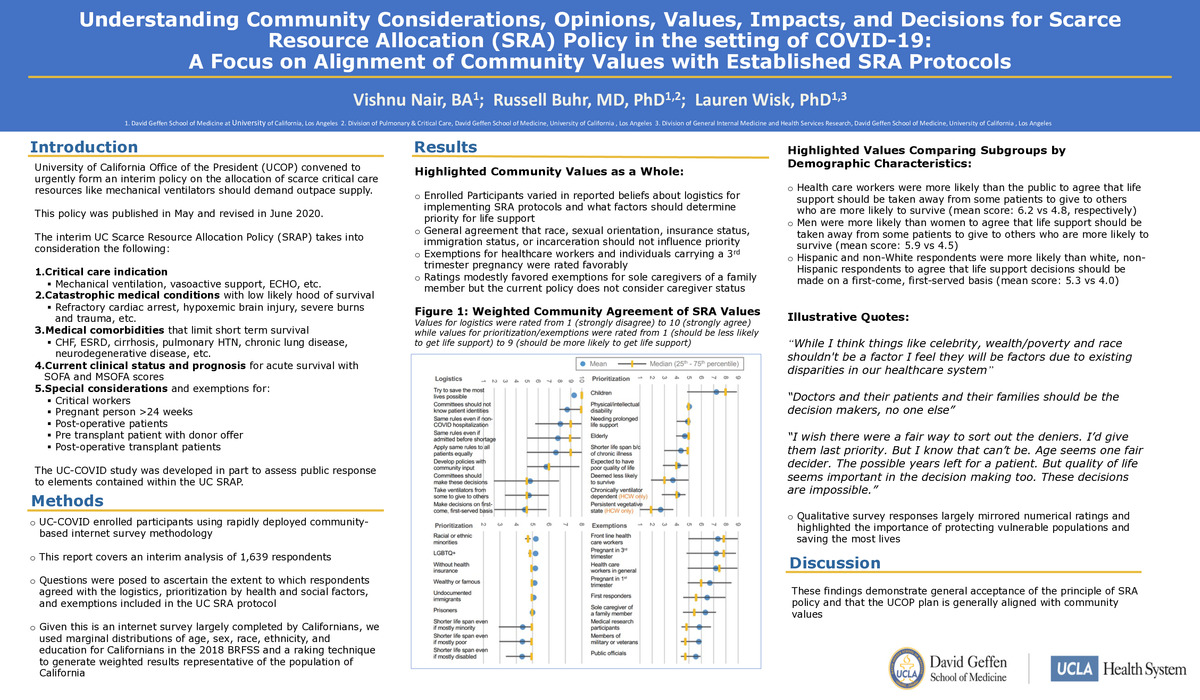-
Author
Vishnu Nair -
Co-author
Russell Buhr, MD, PhD; Lauren Wisk, PhD
-
Title
Understanding Community Considerations, Opinions, Values, Impacts, and Decisions for Scarce Resource Allocation (SRA) Policy in the setting of COVID-19: A Focus on Alignment of Community Values with Established SRA Protocols
-
Abstract
Purpose:
Early in the pandemic, the University of California Office of the President (UCOP) convened to urgently form an interim policy on the allocation of scarce critical care resources like mechanical ventilators should demand outpace supply. This policy was published in May and revised in June 2020. The UC-COVID study was developed in part to assess public response to elements contained within the UC Scarce Resource Allocation (SRA) policy.
Methods:
UC-COVID enrolled participants using rapidly deployed community-based internet survey methodology. This report covers an interim analysis of 1,639 respondents who provided opinions on SRA policy. In the context of value alignment, questions were posed to ascertain the extent to which respondents agreed with the logistics, prioritization by health and social factors, and exemptions included in the UC SRA protocol. Values for logistics were rated from 1 (strongly disagree) to 10 (strongly agree) while values for prioritization/exemptions were rated from 1 (should be less likely to get life support) to 9 (should be more likely to get life support). Given this internet survey was largely completed by Californians, a marginal distributions of age, sex, race, ethnicity, and education for Californians in the 2018 BRFSS and a raking technique were used to generate weighted results representative of the population of California.
Results:
Participants varied in reported beliefs about logistics for implementing SRA protocols and what factors should determine priority for life support. There was general agreement that race, sexual orientation, insurance status, immigration status, or incarceration should not influence priority. Exemptions for healthcare workers and individuals carrying a 3rd trimester pregnancy were rated favorably with weighted median scores of 7 and 8 out of 9 respectively. Of note, community ratings modestly favored exemptions for sole caregivers of a family member with a weighted median score of 5.5 out of 9 but the current policy does not consider caregiver status. Qualitative survey responses largely mirrored numerical ratings and highlighted the importance of protecting vulnerable populations and saving the most lives.
Conclusion:
In summary, these findings demonstrate general acceptance of the principle of SRA policy and that the UCOP plan is generally aligned with community values.
-
College
AAC
-
Zoom
-
PDF

